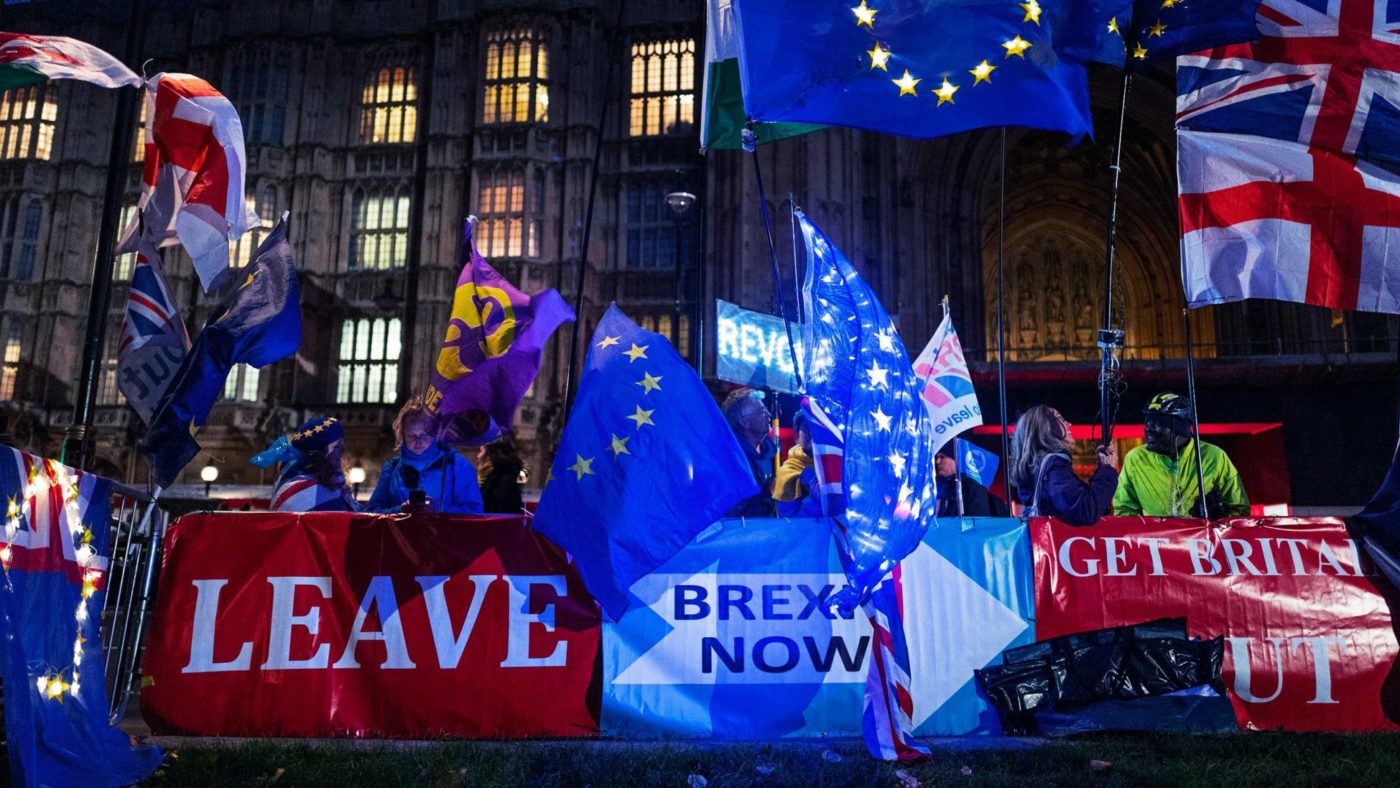Yet again the ineluctable law of Brexit has asserted itself: a deal is only possible once all other options, save that of no deal at all, have been removed from the table. Winnowing is the order of the day. Brexit must be a choice between black and white even though it is a land of grey.
Theresa May never managed to reduce the options to that choice. Remainers continued to hearken for a second referendum or, failing that, yet more extensions to the Brexit process; ardent Brexiteers refused to take the deal on offer, holding out for a purer, harder, cleaner Brexit.
Boris Johnson has not – at least not yet – enjoyed any more luck than Mrs May. The option of remaining, or of a second referendum, remains alive; the possibility of a no deal Brexit is still, even at this late hour, a going concern despite there being no great parliamentary enthusiasm for such an exit. Brexit is a binary being but the specific type of Brexit pursued is not yet an either or proposition. Only when it is can a deal be passed.
That requires the hardest of hard deadlines, the better to concentrate minds. Instead, however, the deadline is soft, capable of being Brexit pursued is not yet an either/or proposition. Only when it is can a deal be passed.extended time and time again. It is an essay crisis that never quite demands the damned essay be written. The Prime Minister might have promised the UK would leave the EU, come what may, by the end of the month but the ability to deliver on his vow is no longer in his own hands. Such is the life of a minority government.
But then, with the exception of Parliament’s hostility to a no deal Brexit, there are still few signs of Parliament being able to find a majority for positive, as opposed to negative or blocking, action. Even the Benn Act is principally a means by which the House of Commons can avoid screwing its courage to the sticking point for some time yet. Please, lord, grant me an end to Brexit – but not quite yet.
In those circumstances the Tory slogan “Get Brexit Done” has some force even if it is also an uncommonly despairing one. If no good outcome exists we might as well get on with this one; what is the point of waiting still further? We have had more than three years of wrangling about this and it is time to put Brexit out of its misery.
Or, rather, time to move on to the next, more difficult, phase of Brexit. The negotiations over the ongoing relationship between the UK and the EU will not be easy. Indeed they are likely to be harder and certainly more important than the precise terms and detail of the Withdrawal Agreement itself.
In that sense, the modifications to Mrs May’s withdrawal agreement won by Mr Johnson should be understood as relatively small beer. They have helped him sell the deal to Tory backbenchers but they do not amount to very much in the longer-term.
Nor, it must be allowed, do they inconvenience the EU, not least inasmuch as the new proposals for Northern Ireland are rather closer to the EU’s initial preference for the province and the Irish border than they were to the British government’s before, that is, the UK administration decided to change its mind and set Ulster free.
Still, today’s parliamentary shenanigans are not likely to provide an answer either. At best, as far as the government is concerned, they may keep the dream of Brexit before Halloween alive for a little longer but they cannot enforce a departure on that timetable.
Fundamentally, as critics from all quarters have observed, the government is asking for plenty – and for trouble – by demanding to be trusted on all of this. It will, of course, be for future governments to decide the extent to which the UK abides by EU regulations – many of which will need to be obeyed by UK companies wishing to sell to the continent – but when the Government is telling Tory backbenchers the deal allows us to go our own way while also telling Labour MPs that, actually, the UK might enhance regulatory protections beyond the demands currently made by the EU, it seems evident the government has a credibility problem. They can’t both be right – and the logic of Brexit favours divergence.
That highlights this elemental difficulty at the heart of the Brexit parliamentary arithmetic: what you gain on the swings you lose on the roundabouts. The government needs the support of doubtful Tory and Labour MPs alike but measures taken to attract support from one group necessarily repel the other. And vice versa. That is the crux of the matter and this is not a Gordian knot to be solved with a sword.
The longer the process is extended so two further impulses will grow. In the first place, the appeal of Get Brexit Done – by any means necessary, if necessary – seems increasingly persuasive. But, secondly, and directly in response to this, so does the alternative: binning Brexit entirely.
The longer this process goes on, so the sunk costs become ever greater. But sunk costs impose no requirement to carry on throwing money into the Brexit pit. Indeed, the argument that Brexit be put back to the people – one way or the other – gains force precisely because so much has already been committed to the project for so little reward.
In the end, that’s chiefly a fresh reminder that whatever the costs – and benefits – of Brexit thus far they are as nothing compared to the scale of the arguments to come.
CapX depends on the generosity of its readers. If you value what we do, please consider making a donation.


